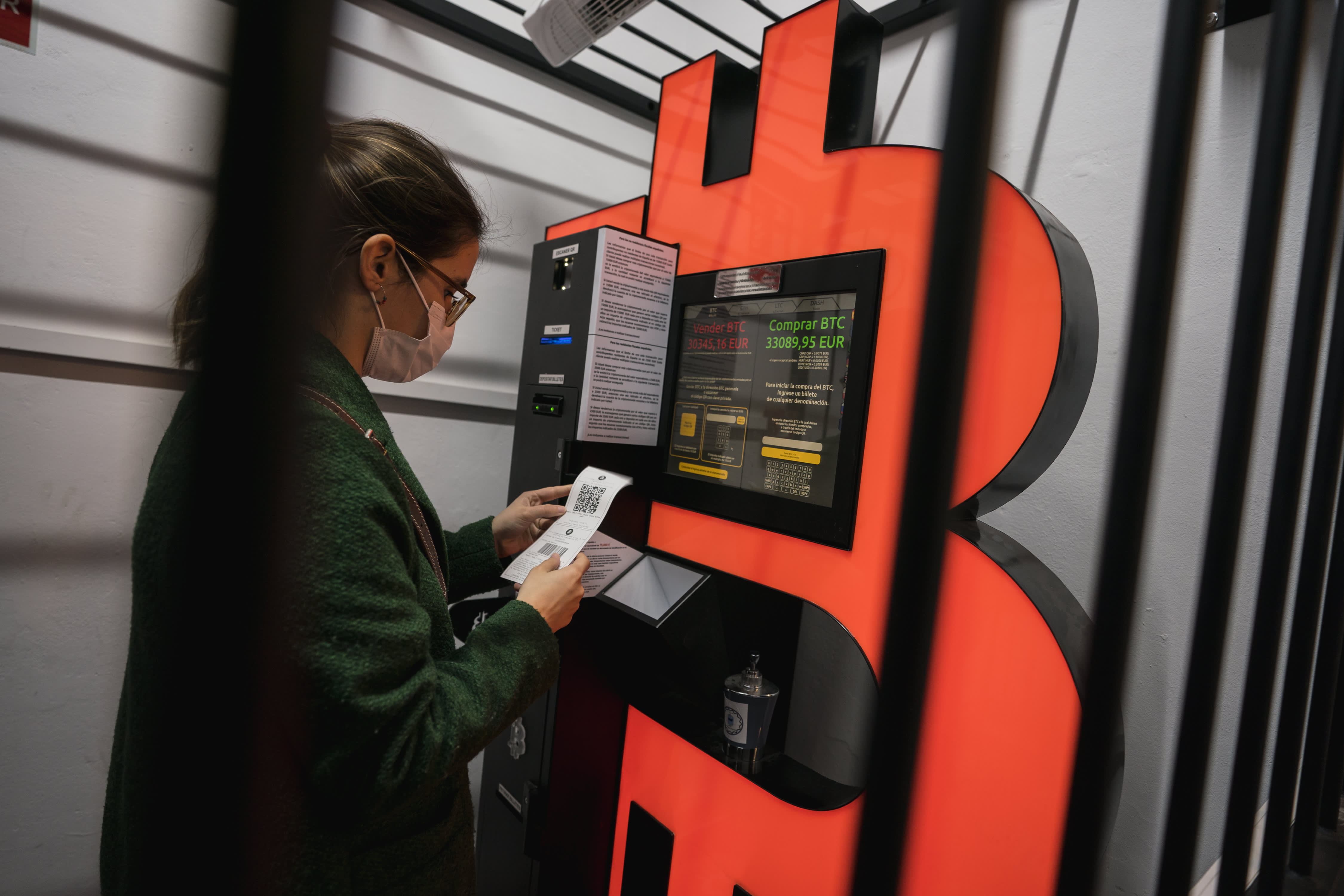Bitcoin tumbles 10% as El Salvador adopts it as legal tender

The price of bitcoin fell Tuesday after breaking through $52,000 late Monday, reaching its highest level since May.
The price action comes on the day El Salvador is set to adopt the largest cryptocurrency by market cap as legal tender, becoming the first country to do so. Bitcoin fell as low as 16% Tuesday morning. It was last down by about 9% and trading at $47,223.26, according to Coin Metrics.
Crypto adjacent stocks Microstrategy and Coinbase also fell about 6% and 3.5%, respectively. Coinbase users are experiencing delayed or canceled transactions at “elevated rates,” the crypto exchange said in an update on Twitter in the late morning. Kraken, another major crypto exchange, said around the same time that it’s investigating delays for users using instant funding methods as well as failed card payments.
Early Tuesday the country disabled Chivo, its government-run bitcoin wallet, to increase the capacity of the servers, which were hindering new users from installing it, El Salvador President Nayib Bukele announced in a tweet at about 7:00 a.m. EST.
“Any data they try to enter at this time will give them an error,” he said. “This is a relatively straightforward problem, but it cannot be fixed with the system connected.”
The market action is unsurprising, according to Leah Wald, CEO at Valkryie Investments, who said the news was largely priced into the market “a while ago.”
“When this move was first announced, it didn’t have nearly as big of an impact on price as some may have expected it might, possibly because El Salvador’s population is less than New York City’s, but also because the announcement was light on details and people were on the fence about how this was going to be implemented,” she told CNBC, noting that much of El Salvador lives in poverty and doesn’t have internet or smartphone access required to participate in the bitcoin network. “Transaction fees, processing times, and other hurdles also make this feel more like a beta test rather than a solution to many of the problems plaguing the country’s poor,” she added.
As part of the new law, businesses will be required to accept bitcoin for goods and services, though merchants who aren’t technologically able to accept bitcoin will be exempt. The government has installed 200 bitcoin ATMs around El Salvador. It also bought 400 bitcoins worth about $20 million and is preloading Chivo wallets with $30 worth of bitcoin for Salvadorans who register.
Some traders are saying on social media that they will be buying $30 worth of bitcoin in their local fiat currencies to commemorate and support El Salvador’s new law, at 3:00 p.m. EST. But bitcoin prices were sliding into the afternoon anyway.
“What is most worth looking out for is whether or not neighboring countries in Latin America, or those elsewhere around the world, begin to adopt bitcoin as their national currency as well,” Wald said. “Should this occur, that is when we could see a parabolic move higher, as the momentum gained from many millions more people having instant access to crypto should result in more adoption, more HODLing, and higher prices.”
Bitcoin advocates have long held there’s a strong case for Latin American markets using the cryptocurrency as a medium of exchange, for remittances and even for central banks that experience high currency depreciation.
On Monday Panamanian politician Gabriel Silva introduced the “Crypto Law,” which “seeks to make Panama a country compatible with the blockchain, crypto assets and the internet,” he said on Twitter. “This has the potential to create thousands of jobs, attract investment and make the government transparent,” he added.